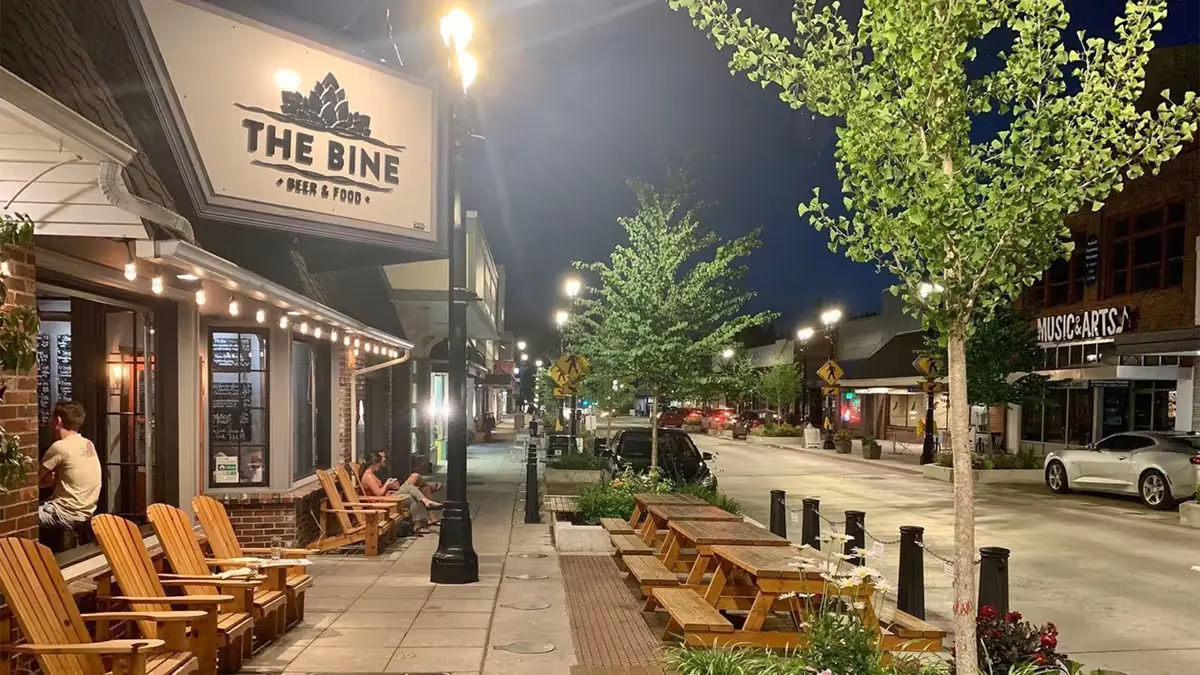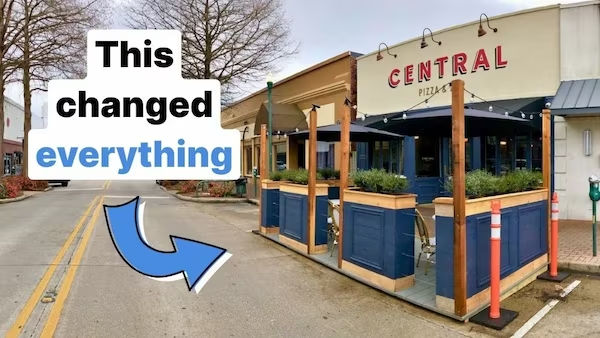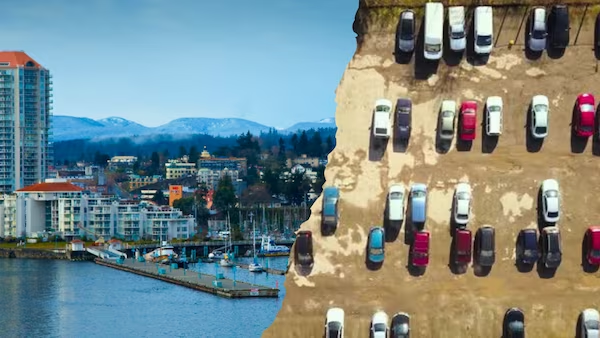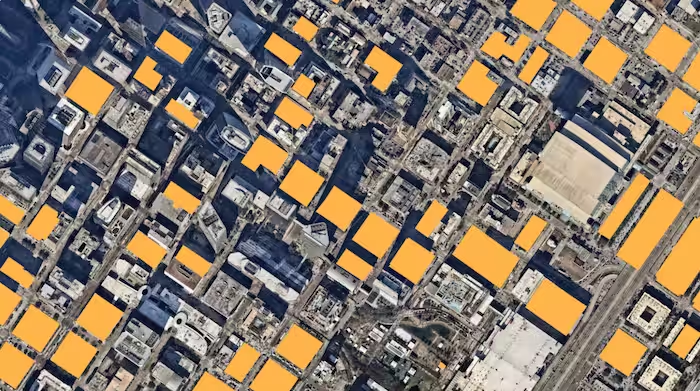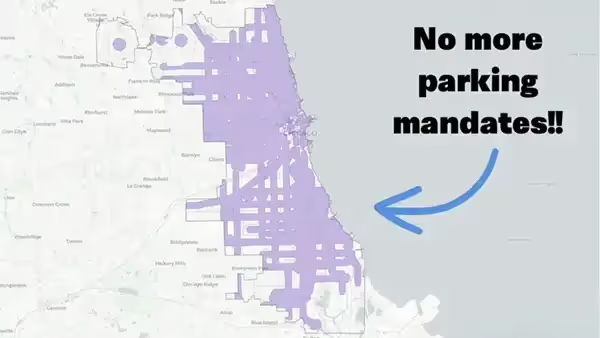For years, if you wanted to open a modest café in Bothell, Washington, you needed more than vision. You needed asphalt. A lot of it.
But earlier this month, that changed. In a 5-1 vote, the city of 52,000 eliminated all off-street parking requirements and opened the door for small-scale businesses—like cafés, corner stores, and child care centers—to operate in residential areas citywide.
In doing so, Bothell joined a growing list of cities rejecting outdated development rules in favor of more flexible, people-focused policies. For Mayor Mason Thompson, it was about aligning city code with community values—and removing barriers that don’t make sense anymore.
“I am really excited tonight, because we get to take a big step away from the way we’ve always done things, toward our community’s values a little bit closer,” Bothell’s Mayor said ahead of the vote. “And the mechanics of parking minimums essentially tax new housing and new businesses that we say we really want, and we use that tax toward building something that creates more traffic and more pollution. And I’ve had thousands of conversations with Bothell residents over the last few years, and I’ve never had a single person say, do you know what? We need more traffic and more pollution. And I’m really excited to get rid of policy that subsidizes both.”
“I’ve never had a single person say, do you know what? We need more traffic and more pollution. And I’m really excited to get rid of policy that subsidizes both.”
— Bothell's Mayor Mason Thompson
Under the new rules, corner stores, cafés, bars, bike shops, salons, art galleries, child care centers, and artisan-manufacturing with on-site sales can open in any residential zone. The ordinance explains that these uses are designed to “promote neighborhood vitality and compatibility with surrounding residential areas,” serving primarily local residents with “minimal traffic from outside the neighborhood,” supporting walk, bike, and transit access, and helping build “pedestrian-friendly community hubs which eliminate reliance on automobiles.”
These zoning updates come amid a broader trend. In Seattle, a pandemic-era innovation—Yonder, a takeout-only cidery operating out of a homeowner’s garage—was forced to close after zoning enforcement deemed it a violation of single-family residential rules and parking regulations. That closure sparked backlash, and Seattle eventually passed the "Bringing Business Home" ordinance to protect such microbusinesses in residential zones.
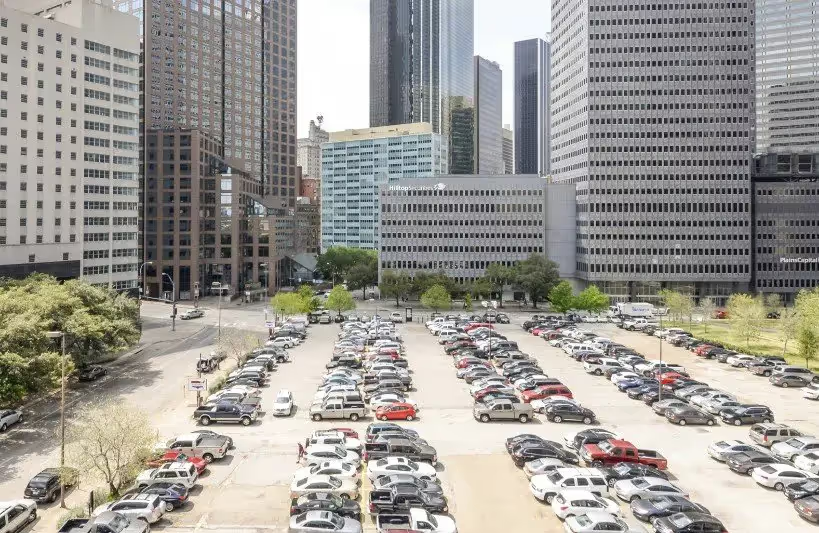
Another city stepping up is Boulder, Colorado. In late June, the Boulder City Council unanimously voted to eliminate all minimum parking requirements for new developments, a change expected to take effect later this summer. While state law recently lifted mandates near transit stations, Boulder is going a step further by applying the change citywide.
And more is on the way. Boulder’s council is preparing to vote on a transportation demand management policy later this year aimed at reducing car dependency by shifting how mobility is funded. The proposed policy would require developers to contribute to programs that expand transportation options—offering things like free bus passes, Lime scooter access, and other services that make walking, biking, and transit more viable for everyday trips. Contributions would scale based on project size and be subject to regular reporting and oversight.
City officials acknowledge that these programs may add costs for developers. But they also point out the steep price tag of the status quo: an underground parking stall can cost $50,000 or more. For many projects, simply removing the mandate to build that parking in the first place can more than offset the new fees. In other words, Boulder isn’t just changing zoning; it’s rethinking what it means to invest in mobility.
Meanwhile, in Kansas City, Kansas, officials recently proposed a moratorium on commercial parking mandates through 2028, after small-business groups testified that rigid parking requirements blocked reinvestment in legacy neighborhoods. Patrick Tuohey, Policy Director of the Better Cities Project, explained: “This is not a mandate against parking, but an invitation to build what’s needed without arbitrary constraints.”
The phrase captures the broader shift in mindset. This isn’t about banning cars. It’s about letting the actual needs of a site, business, or community determine how much parking makes sense.
The reform isn’t coming out of nowhere. Both Kansas City’s 2023 Comprehensive Plan and Economic Development Strategy Plan identified parking mandates as a barrier to growth. And federal data backs up the concern: according to the U.S. DOT’s 2025 “Parking Reforms” brief, the high cost of structured parking makes many small-scale or infill projects financially infeasible. Surveys collected by the Parking Reform Network also suggest that after mandates are lifted, cities generally see little change in code violations or complaints.
All in all, these cities aren’t throwing out parking altogether. They’re just refusing to let it dictate the shape of every new building, block, or neighborhood. As Bothell’s mayor put it, “I want there to be more Bothell in Bothell.”

